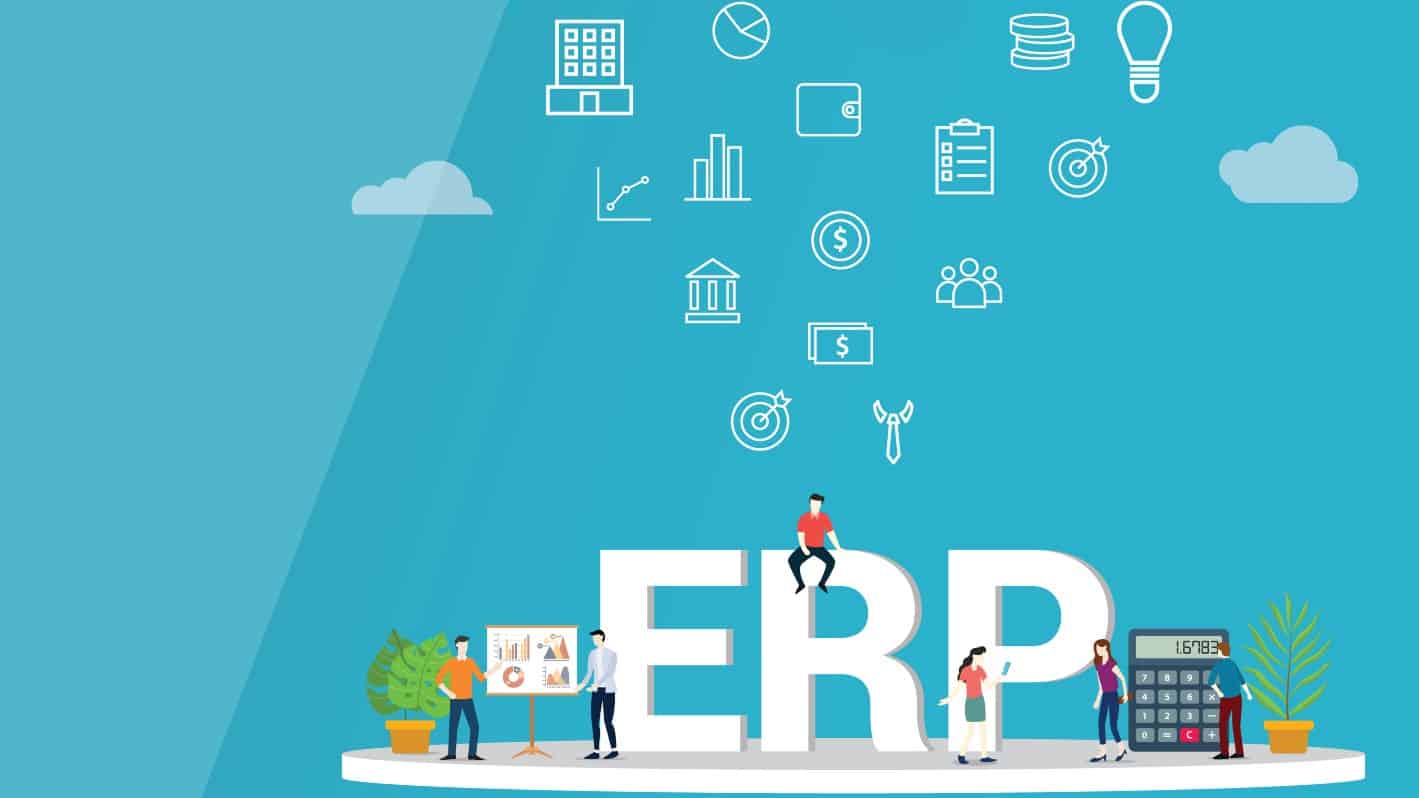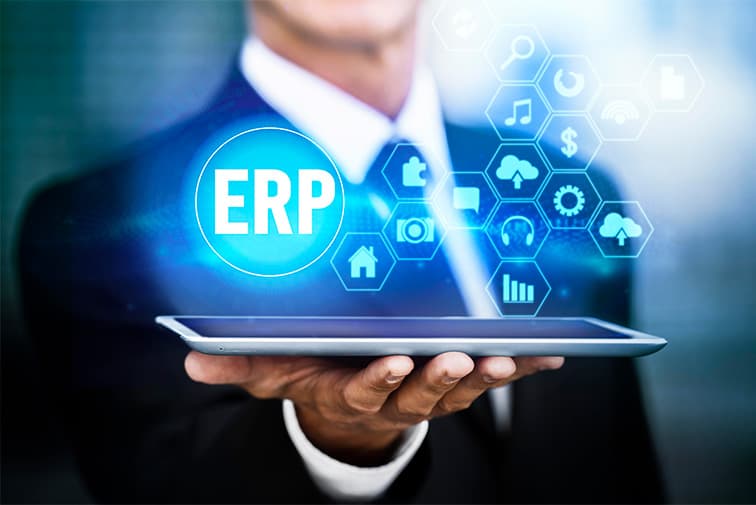What is a Fully Integrated ERP?
The Importance and Misconception of ERP
Modern businesses have to adapt to new working environments and regulations, pushing them to operate primarily online. Some companies may take longer than others to conform to the new standard of running a successful business virtually. Most small to medium-sized businesses end up using multiple software to run their businesses.
If you have been working from an on-site office using terminals in a building to install various software on the computer or server, it stays only on-site. Nowadays, many businesses need spreadsheets, web store orders, bookkeeping information, and company emails wherever they go. Taking all this data with you is impossible without a fully integrated Enterprise Resource Planning cloud-based software.

The Benefits of Fully Integrated ERP
Having Enterprise Resource Planning (ERP) software can be less expensive and more productive to various degrees depending on the business and industry. A truly integrated ERP system is built from the ground up. The system becomes integrated by the modules within the software, all communicating with each other. It prevents headaches and helps businesses continue to build a single platform to improve their business operations. Below are some of the differences between the two systems:
| Multi-Software | Fully Integrated ERP |
|
|
|
|
|
|
|
|
|
|
|
|
What My Office Apps Offers
If the software does not communicate, data becomes lost, causing more manual work to recover lost data, taking up the company’s time, money, and energy. 
When software isn’t connecting because of compatibility issues, it shows a company unorganized internally and externally. A fully integrated ERP system allows the manager in the office, the supervisor at home, and the warehouse workers to work together under one software in real-time to improve efficiency and save money.
There is a vast difference between an integrated ERP system and one built off different software packages. Unlike some other ERP systems that are created by acquiring different companies and stitching the software together, My Office Apps has designed and built our software from scratch. The My Office Apps team of developers has over 30 years of expertise in designing and implementing ERP systems. We know this is a better approach for businesses and provides users with the most significant benefits and efficiency when using an ERP system.
Our popular ERP features
- Inventory Management
- Multi-Warehouse Management
- Customer Relationship Management
- Order Management
- Vendor Management
- Production & Manufacturing
- Accounting and Financial Management
The software can process everything from simple tasks to complex data all through any web browser. Kechie ERP can automate your business operations by adapting to your business requirements. Our goal is to offer software with the highest quality, consistency, integration, and ease of use that is scalable and offers advanced features without the higher price tag.
Click here to schedule a demo or contact us here for more information.
What are the Primary Benefits of an ERP System?
What are the Benefits of an ERP System?
There are many advantages to an ERP (enterprise resource planning) solution. Though there are some perceived disadvantages such as increased costs, (we dispell that myth,) the benefits outweigh the perceived disadvantages. Many companies are unaware of what an ERP system can do. ERP software is used to create visibility into the company data, simplify operations, and streamline your business processes. We prepared an analysis of the most important benefits of an ERP software.
1. Total Visibility
To be able to see into your business processes is more valuable than an everyday commodity. Every business needs to be able to look at data from various departments, and how they are interacting. This is the main benefit of ERP software. It allows a business to control inventory levels based on the data they receive. This provides the company access to information that will allow them to forecast, and make better decisions when purchasing future inventory, in turn, saving money. Using reports generated from the system, you can analyze and compare production, tracking, and workflow within every department. A huge aspect of any successful business is the ability for the different departments to interconnect. This is done through collaboration that is provided by an integrated ERP solution.
2. Simplified Business Processes
A simplified business process allows a company to streamline their business operations. When a company can standardize their processes, it provides a greater efficiency and potential ROI. Because the processes are automated, there’s no room for common errors, duplicated content, or forgetting the necessary processes with the right ERP solution. Employees get to have access to data whenever they need it, so they can make informed decisions without having to wait for time-consuming, costly email responses. With customizable features, each department can see what they need to, without seeing a flood of irrelevant information. Some ERP solutions like Kechie, even provide customizations down to the user-level, so that you can get into the software and see only what you want. Real-time data, with real-time access allows businesses to focus on what really matters in their companies.
3. Fully Integrated ERP Solution
An ERP solution that is already Fully-Integrated is much easier to work with, than purchasing various pieces of software, trying to connect them together. You get real-time data, automatic updates, and accurately communicated data. This is important when it comes to streamlining any business. Employees need a consistent user-interface from an easy to use software that won’t require much training. You might think that all ERP software is fully integrated based on the definition, but not necessarily. When a software is fully integrated, that means you don’t have to have different software to try to accomplish your everyday tasks. While it is important to have third party integrations (ex. Shopify, Woo Commerce,) it’s also just as important to control your inventory without having to customize the software with a separate module, hoping it will work.
ERP software has many benefits that let you get insights into your business to make the best decisions. By streamlining your operations, you are increasing your ROI and improving your workflow, as well as, the collaboration of your departments. When your business is fully optimized by an ERP solution like Kechie ERP, it can drive increased profitability, streamline operations, and let you focus on what matters to your business.



